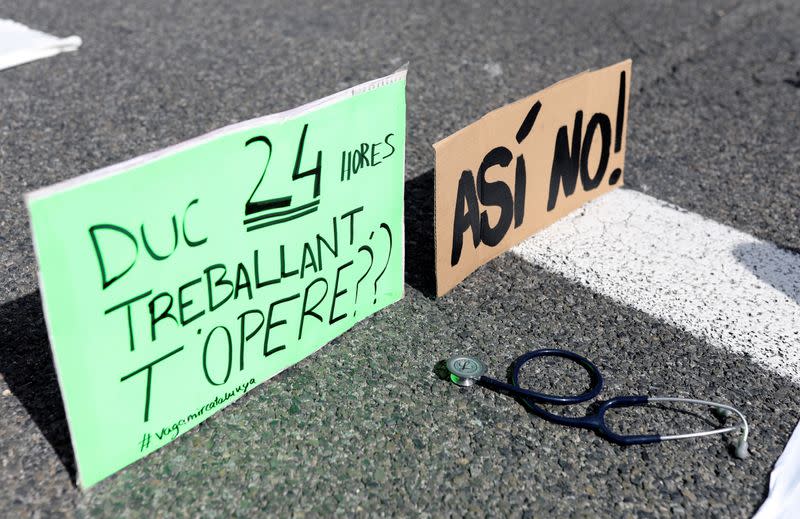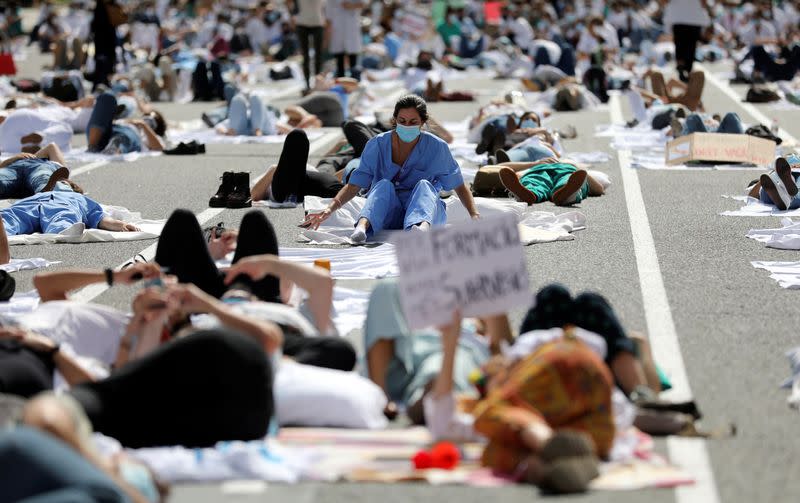Stretched to the limit, Spanish medics demand better conditions
By Nacho Doce and Marco Trujillo
BARCELONA/MADRID (Reuters) - Dressed in white lab coats, medical scrubs and face masks, hundreds of junior Spanish doctors took to the streets of Barcelona on Tuesday to demand better working conditions as they struggle against a second wave of coronavirus infections.
"We're working up to 80 hours a week and clocking shifts of 24 hours," protester Clara Boter, a 28-year-old medical resident intern, told Reuters. "Our contract is for 40 hours a week and we're on a basic salary."
Doctors in her position earn around 960 euros a month, she said.
Between chants, the young doctors put down blankets around Barcelona's busy Plaza de Espana roundabout to stage a sleep-in, highlighting the long hours they have to work.
One protester lay next to a sign that read: "I haven't slept in 24 hours. Can I take care of you?"
Since exiting a strict lockdown in mid-June, coronavirus cases in Spain have soared, with thousands of infections diagnosed every day. Hospitalizations, though lower than the March-April peak, are also on the rise.
Spain reported 2,586 new coronavirus cases in the past 24 hours, bringing its total to 758,172. Spain has the highest infection daily increase in Europe.
The total number of COVID-19 fatalities rose by 203 to 31,614, Health Ministry data showed. The number of deaths in the last seven days rose to 443 from an increase of 359 on Monday.
Junior doctors are not the only ones feeling the strain. In Madrid, the epicentre of the outbreak, primary care staff are also struggling to contain the surging caseload.
Regional authorities have locked down 45 mostly poor districts but have clashed with the national government, which favours a city-wide confinement.
In the working-class neighbourhood of Vallecas - one of the first to be shut down - nurse Flora Espejo complained the political squabbling was doing nothing to help the situation.
"These politicians need to calm down, do their job and start to improve this situation, which is completely overwhelming."
At the Buenos Aires health centre where she works, people were queuing up outside to take a COVID-19 test.
The city has begun a mass-testing campaign in an effort to track the virus and isolate those who test positive, but Espejo is sceptical of its value.
"Recommendations without control are useless, I make recommendations continuously. There are people who carry them out and people who do not."
(Reporting by Marco Trujillo and Elena Rodriguez in Madrid and Nacho Doce in Barcelona; Writing by Nathan Allen; Editing by Mike Collett-White and Grant McCool)






